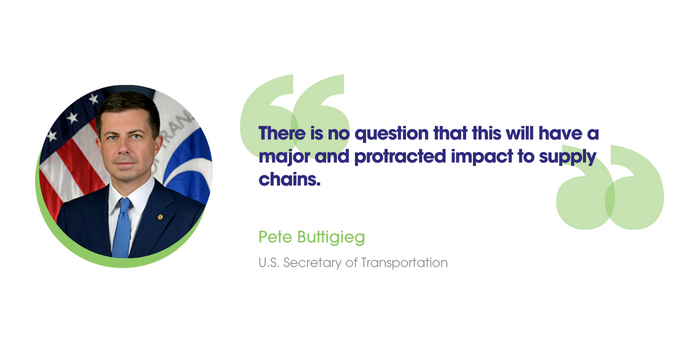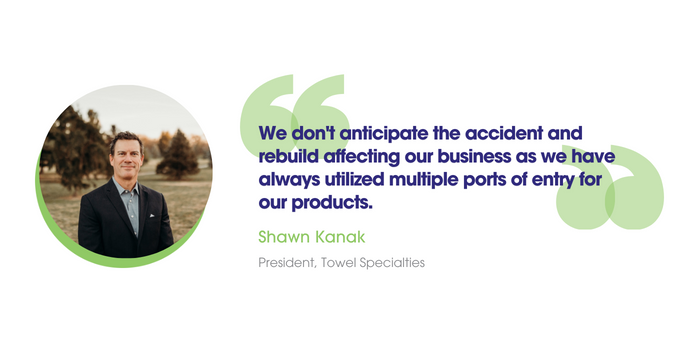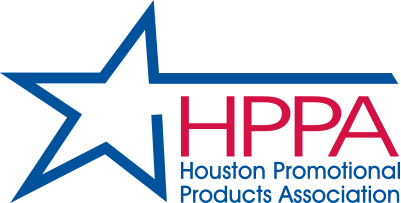Early Tuesday morning a massive container ship struck Baltimore’s Francis Scott Key Bridge, causing a significant portion of it to collapse into the Patapsco River. As of Thursday morning, the bodies of two construction workers who had been performing repairs on the bridge's roadway have been recovered, while four more are missing and presumed dead.
- As immediate safety concerns are addressed, various industries are left to speculate over how shipping logistics will be affected by the closure of the Port of Baltimore for an undetermined period.
- Most promo suppliers are unlikely to feel any direct impact from the immediate closure of the Port of Baltimore, but there are a number of factors that could see promo’s supply chain affected by it in the coming weeks or months.

- 7 million tons of general cargo.
- 3 million tons of roll-on/roll-off farm and construction machinery.
- 847,000 cars and small trucks
Other automakers, like BMW and Volkswagen, that utilize the port only anticipate temporarily delays.
Other East Coast ports in New York, New Jersey, Philadelphia and Virginia will likely absorb the shipments that Baltimore would have taken on, which will require careful logistics to avoid a strain on any given port.
Nearby ports’ ability to absorb additional cargo could affect promo firms’ operations.
Congestion in any given port could also lead to delays in shipping. Industry companies will likely need to coordinate with partners along their individual supply chains for up-to-date freight timeframes.
Much of 2023 saw the West Coast ports contending with labor issues. They ultimately avoided prolonged labor stoppages, but many companies opted to reroute through the East Coast.
That dynamic reversed at the end of 2023, as drought affected the Panama Canal’s viability as a cargo passage, sending many shippers back to the West Coast.
A labor strike at East Coast ports remains a possibility ahead of a September 30 contract deadline. Disruption in the ports, or overwork among any given East Coast port because of the Port of Baltimore closure, will likely not help these dynamics, which past events have shown can become tense quickly.
“There is no question that this will have a major and protracted impact to supply chains,” says Pete Buttigieg, the U.S. Secretary of Transportation.
Life Without The Port Of Baltimore
According to the Bureau of Transportation Statistics, the Port of Baltimore is the 20th largest port in the country. Approximate logistical numbers for the port in 2023 include:
The port is somewhat unique in that a significant portion of its cargo is made up off “roll-on/roll-off” shipments including passenger cars, farm equipment and large construction materials. It’s the country’s busiest port for car and light truck shipments, and industry observers speculate that prolonged closure could push automobile prices higher in the coming months.
Currently, there is no official estimate on when vessels will be able to enter and leave the port, as stated by the port’s social media accounts. Some estimates suggest fully clearing the bridge debris could take as long as three months.
Ford and GM have already diverted shipments away from the port, with Ford’s CFO publicly stating the closure will “have an impact” on the company.
The port has 12 private and five public terminals from which vessels can enter and depart.
Replacing the bridge could take several years, with the condition of its existing foundational structures a major factor in shaping the ultimate timeline. President Joe Biden has stated that he does not plan on waiting for an investigation that could hold the ship responsible for collapse in order to pay for the rebuilding process.
“It’s my intention that the federal government will pay for the entire cost of reconstructing that bridge, and I expect Congress to support my effort,” Biden says. “This is going to take some time. We’re not leaving until this job is done.”
Promo Perspective
It is unlikely that promo is among the industries to face any immediate pressure due to the port’s closing.
Shawn Kanak, president of Towel Specialties, based in Baltimore, said that he does not expect any slowdowns in production or shipment caused by the bridge’s collapse.

“The Francis Scott Key bridge is 10 miles away from Towel Specialties and didn't impact any employees,” Kanak says. “We are fully operational and preparing for our busiest spring/summer season ever. We don't anticipate the accident and rebuild affecting our business as we have always utilized multiple ports of entry for our products for nearly 40 years. We are, of course, mournful of the loss in the community and appreciate everyone's concerns.”
However, in the macro sense, promo companies should monitor the situation, as well as their logistics, carefully. The aftermath of the collision risks disrupting an already precarious freight-based supply chain, both for industry companies and their clients.
Even further into the future, the events could change or accelerate trends in how freight enters and moves through the U.S.
Written by: Jonny Auping
Published with Permission from PPAI
